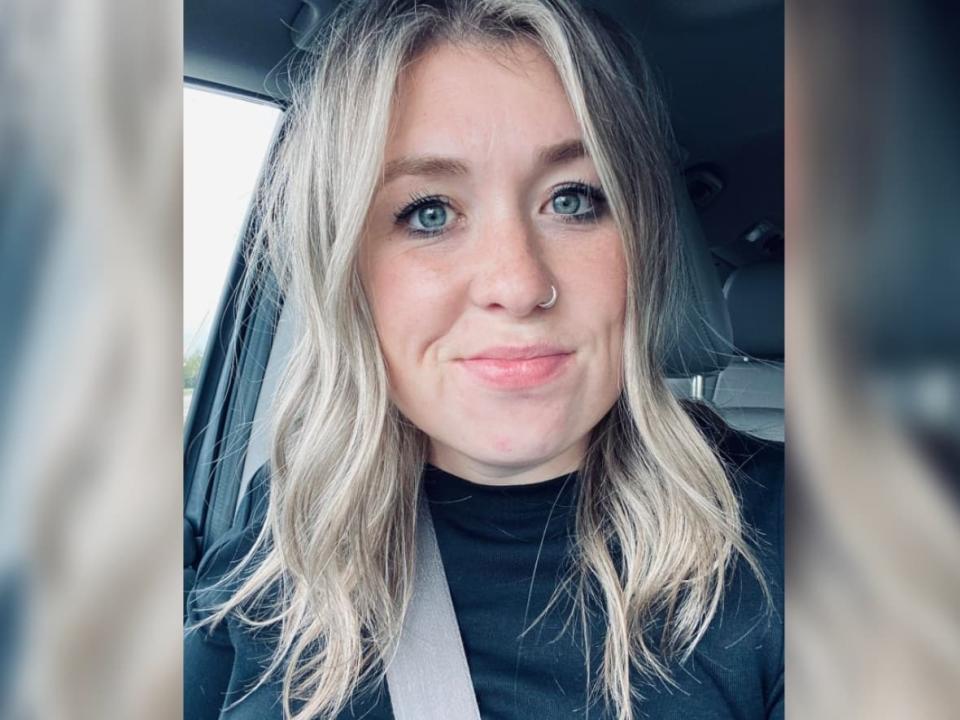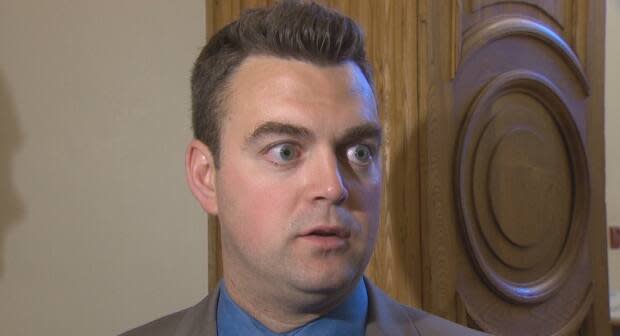N.B. education assistant describes feeling 'helpless' with removal of COVID rules in school

A New Brunswick education assistant is adding her voice to those calling for a return of some COVID-19 restrictions in the province's schools.
"I would say it has been overwhelming, to say the least," said Allison Taylor, describing what it's been like to work in a school for the past two weeks.
The provincial government dropped all COVID-19 restrictions across the province on March 14, bringing an end to the requirement that masks be worn indoors and that people isolate when they catch COVID-19, even in schools.
Taylor works at a high school in Miramichi, but declined to disclose the name out of privacy concerns.
Speaking on Information Morning Moncton on Friday, she said the end of restrictions has left her feeling as if there's nothing she can do to protect herself or her students from the virus.
"I'd say that the hardest part has been just feeling like there's a lot of situations that I'm very helpless in.
"Like before, I would have seen, you know, like a student coughing, but I would know, you know, they have a mask on, no big deal. But now there's really, there's just nothing we can do for anything that we see anymore."
On Tuesday, Taylor turned to Twitter to vent her feelings in a series of tweets that received hundreds of reactions from other users.
Recounting that day, Taylor said there were a number of troubling situations, including a student being unmasked at school, despite having COVID-positive family at home, and other students who'd tested positive while at school but were allowed to stay since they weren't symptomatic.
"And a lot of our children were sick that day, and it just felt like … everyone was getting sick, and there was just nothing we could do about it."
Taylor's concerns come as some parents and the head of the New Brunswick Teachers' Association voiced concerns over the dropping of all COVID-19 restrictions in schools.
The New Brunswick government hasn't reversed that decision, even as Nova Scotia made a last-minute tweak of its Monday reopening plan that sees mandatory masking continue in schools.
Taylor, who still wears a mask at school, said she wants to see the reintroduction of some rules, such as requiring masks for students and staff who are symptomatic, and a required isolation period for those who test positive.
Aside from helping bring back a feeling of safety and comfort, she said, it could also help reduce the number of teachers falling ill and having to call in sick, resulting in staff shortages.
"Bring [restrictions] back so that people can feel like they are safe to come into their workplace again," Taylor said.
'We know that probably at the end of the day, you know, we will all get COVID in some way or another, and maybe it won't be what we think is COVID, we'll think it's a cold.' - Blaine Higgs, New Brunswick premier
CBC News requested an interview with Education Minister Dominic Cardy to discuss Taylor's concerns.
In an email, Department of Education spokesperson Flavio Nienov said that in memos sent to principals and school districts, the department has encouraged students and school personnel to stay home when they are sick.
He said it's also "highly recommended" they practise good hygiene, such as hand-washing, sanitization, and covering their mouth and nose with a tissue or elbow when coughing or sneezing.
Nienov said while some schools are dealing with staff shortages, none have had to close since COVID-19 restrictions were lifted March 14.
"Earlier this year, the department and school districts redeployed educators from throughout the system to support schools with employment gaps and we are prepared to implement these measures again if necessary," Nienov said.
"We recognize the efforts of teachers and administrators in ensuring that learning is not impacted and we will continue to work closely with school districts to assess the situation."
Liberal calls for return to in-school masking
Speaking to reporters at the legislature on Friday, Moncton Centre MLA Robert McKee said he wanted to see the government reimpose mandatory masking for staff and students in the province's schools until at least the end of April.
He said his stance was triggered by word of staffing challenges at schools around his riding because of COVID related absences.
He said a petition signed by 1,400 people calling on the reintroduction of masking in schools also swayed his position on the issue.

"I support that initiative because schools are places where kids are gathering in close proximity to each other for long periods of time," he said.
"They can catch it, they can bring it home, and then it spreads in the family and then it spreads into workplaces. So really, if we can get it nipped in the bud at the school level, I think it can go a long way protecting society at large."
In early March, prior to restrictions being lifted, Green Party Leader David Coon said he thought mandatory masking should be kept in schools.
Speaking separately to reporters on Friday, Premier Blaine Higgs stood by the decision to not require masks in schools, saying that the province was basing its stance on the recommendation by Chief Medical Officer of Health Dr. Jennifer Russell.
"We've said all along keep the politics out of health care and let Public Health make decisions based on the epidemiology reports and what they see as best practices," Higgs said.
Higgs also shrugged off a question about other Atlantic premiers making the choice to keep mask mandates in schools, saying again that his government is following Public Health's recommendations, with a focus on making sure hospitals can manage.
"We know that probably at the end of the day, you know, we will all get COVID in some way or another and maybe it won't be what we think is COVID, we'll think it's a cold but … we know we have to find ways to live with this."

